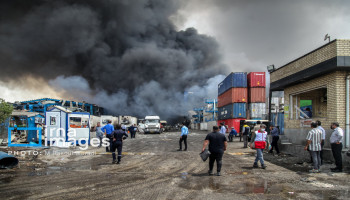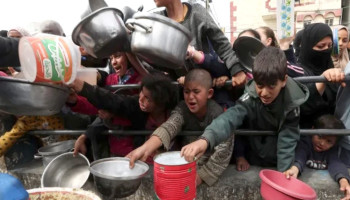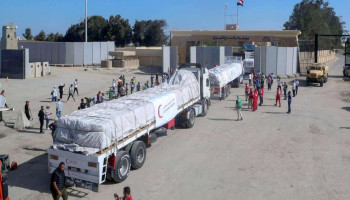Saudi Arabia’s net foreign reserves fell by about $21bn in April after Riyadh transferred billions of dollars to its sovereign wealth fund to finance its overseas spending spree.
Figures released by the central bank late on Sunday revealed that the country’s foreign reserves had fallen to $444bn, the second consecutive monthly decline. Net reserves dropped by about $24bn in March.
The decline in April was expected after Mohammed al-Jadaan, the finance minister, said on Friday that $40bn in foreign reserves had been transferred to the Public Investment Fund, which is aggressively buying stakes in US and European blue-chip companies as it seeks to take advantage of the Covid-19 crisis to snap up assets cheaply. The transfer to the fund took place in March and April.
The use of Saudi Arabia’s reserves to finance the PIF’s activities is contentious as the kingdom grapples with its worst economic crisis in decades, some analysts say. The world’s top oil exporter has been battered by the twin shocks of coronavirus and the fall in crude prices.
It is also indicative of the radical changes that have taken place in the kingdom under the leadership of Crown Prince Mohammed bin Salman, who chairs the PIF. Traditionally, the kingdom conservatively invested its reserves, which are managed by the Saudi Arabian Monetary Authority, and predominantly bought US Treasury bills and other low risk and liquid assets.
“Risking the sovereign’s reserves for uncertain returns is a very high-stakes game rarely done,” said an analyst, who did not want to be named.
Economists estimate that the kingdom needs to keep its reserves above $300bn to preserve the riyal’s dollar peg. The government, which insists it will maintain the peg, has introduced tough austerity measures, including cutting state spending, suspending civil servants’ cost of living allowances and tripling VAT to 15 per cent.
It is also ramping up its borrowing as it grapples with a ballooning budget deficit that is forecast to hit double-digits this year.
Saudi companies have been struggling since the last oil price drop in 2014-15 and hopes of a pick-up in non-oil activity have been dashed by coronavirus.
State spending is the prime driver of economic activity in the kingdom, but the government is being forced to delay projects and reprioritise its allocation of funds.
On Monday, the central bank said it would inject SR50bn ($13.3bn) into banks to shore up the financial sector and help lenders support private businesses. The package marks the second round of monetary
assistance provided by the bank since the outbreak began. In March it announced a SR50bn banking stimulus focused on supporting small and medium-sized companies.
After the oil decline five years ago, the kingdom’s foreign reserves plummeted from $726bn to about $500bn.
Source: Financial Times
Saudi Foreign Reserves Fall as Sovereign Wealth Fund Spends Overseas
الثلاثاء, 02 يونيو 2020






